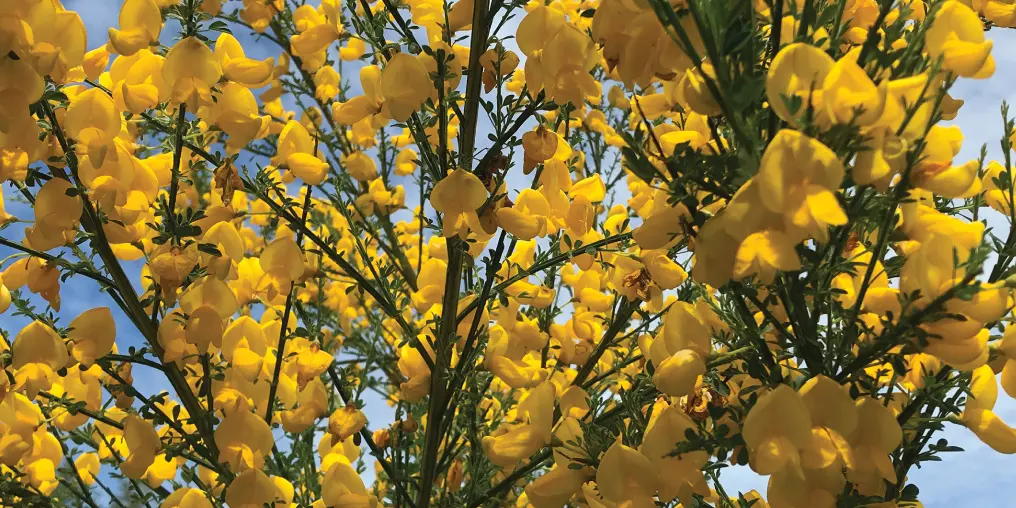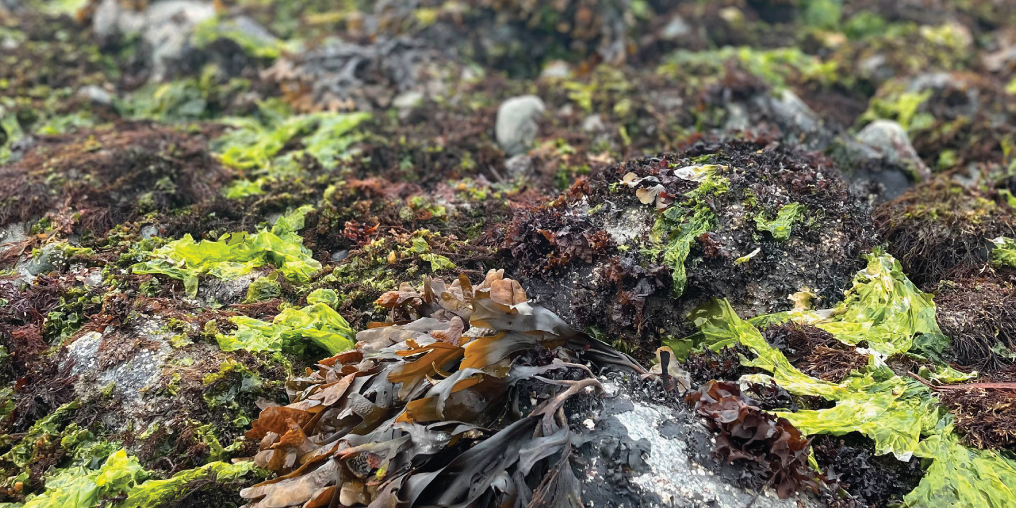Colonialism has taken many forms and has had many legacies. Beginning in the 1840s, settlers on what is now called Vancouver Island displaced Indigenous people and altered the land with urbanization, agriculture, and industrial mining and forestry. An under-recognized aspect of colonialism is the inadvertent and/or heedless introduction of invasive plants and animals from settlers’ homelands.
In 1849, one settler, Captain Walter Colquhoun Grant, was given title to 200 acres of land near what is now Sooke. But Captain Grant (the youngest captain ever in the British army) was better at soldiering than he was at settling. After quickly clearing some of the land, he sold the property within a few years. All we know of his agricultural activities is that he once shot a cow, thinking it was a buffalo, and he planted some common broom (Cytisus scoparius) seeds that he’d picked up on a trip to Hawaii. Although it’s a western Mediterranean native, this shrub is also known as Scotch broom, and Captain Grant was indeed born and raised in Edinburgh, Scotland, so, I mean ….
It’s those broom seeds that cause native-plant lovers on Vancouver Island, and the coastal mainland from Bella Bella to California, to curse Grant’s name. With its dazzling sunny yellow blooms, broom is briefly beautiful from April to June. But it’s a sun-loving killer that colonizes open spaces. It can grow to 12 feet high and produce 18,000 seeds per plant each year. It crowds out indigenous shrubs, including ocean spray, tall Oregon grape, and red-flowering currant, that would otherwise grow in open spots and feed native bees and birds. Even seedlings planted in reforested woodlots are at risk of being choked out.
Broombusters cut broom in bloom
“It becomes a monoculture,” says Bev Agur, area coordinator for the Comox Valley branch of Broombusters, a volunteer organization founded to battle the prolific invader. “Other than the need to grow in sunlight, broom, unlike native species, has no natural controls,” she says. Native black-tailed deer can eat it, for instance, but they don’t, because there’s more appealing natural forage. It’s also highly flammable, making it a concern in wildfire season. So, armed with loppers, saws, and shears, local Broombusters volunteers (about 65 people) take action every spring.
I live next to a water retention pond, and in mid-spring, my daughter and I take loppers and pruners to its banks to shear off the broom at the base and protect the native flora planted there. “Cut broom in bloom” is the Broombusters mantra: the plant is at its weakest then, so if it’s cut down to the ground, it will die.
Of all the invasive plants successfully multiplying in the Valley’s public and private spaces, including Himalayan blackberry and English ivy, Agur says broom is enemy number one. (Allergy sufferers will agree; many of them sneeze and wheeze their way through broom’s blooming season. – Ed.) To try to control it, staff at the Comox Valley municipalities identify areas that need cutting and contact Agur, who then organizes work parties. “We’re definitely reducing broom in the Valley,” she says. “Ryan Road, for instance, used to be completely lined, both sides, and now there is little to none.”

Does broom, this scourge on the land, have any redeeming qualities?
Francois Lavigne, a Parksville wood carver with a sense of humour, calls it “island ivory.” He teaches broom carving at the Oceanside Community Makerspace in Parksville, and has been featured in Woodcarving Illustrated for his broom creations, primarily kitchen utensils like spoons and spreaders. “It has an extremely tight grain, and its hardness gives it utility,” he says. Purchasers of his pieces appreciate the wood’s beauty. “Each spoon has two colours—the dark, reddish-brown heartwood and the white sapwood. It’s a lovely contrast.”
What’s more, there’s no shortage of material to work with. “I always try to encourage other people to use it,” he says. “Nobody minds you cutting it down.”
Visit broombusters.org to learn more and get involved. Work usually starts in early April – all are welcome!





